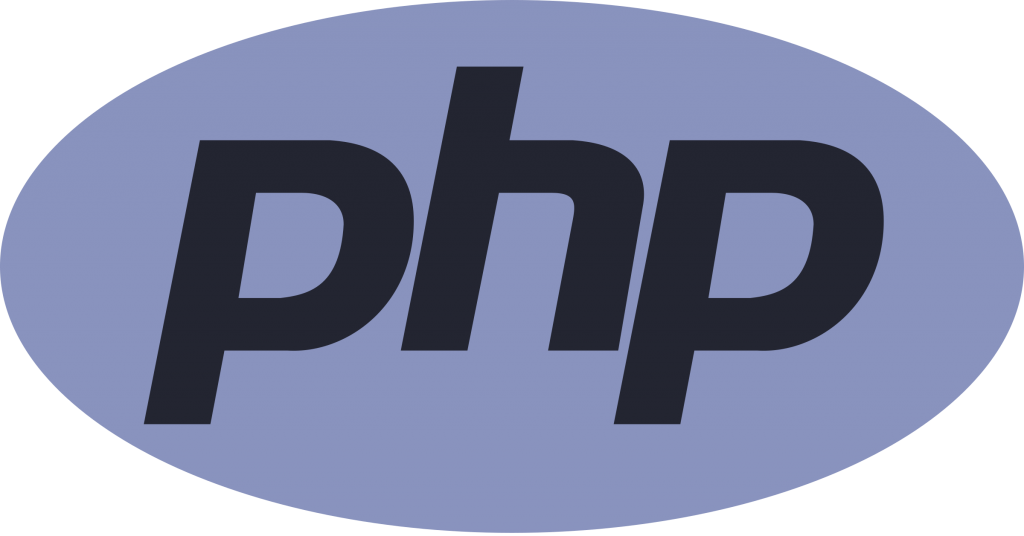Reading time: 10 minutes.

The Evolution of Web Development
Exploring the evolution of web development reveals a significant shift from traditional education to the modern paradigm of web development bootcamps. These programs have transformed how aspiring developers enter the field, providing intensive, hands-on learning experiences.
Traditional Education vs. Web Development Bootcamps
In comparing traditional education to web development bootcamps, several differences emerge. Traditional education, such as obtaining a computer science degree, typically spans four years and includes a broad range of subjects. This route provides a comprehensive foundation but often lacks the immediacy and focus on industry-relevant skills.
Web development bootcamps, on the other hand, offer an accelerated path. These programs range from a few weeks to a few months and concentrate specifically on web development. Bootcamps emphasize practical, real-world applications and hands-on learning, allowing participants to quickly acquire the necessary skills to enter the workforce.
| Comparison | Traditional Education | Web Development Bootcamp |
|---|---|---|
| Duration | 4 years | 6-24 weeks |
| Curriculum | Broad, theoretical | Focused, practical |
| Cost | High (tuition fees) | Variable (often lower than degrees) |
| Learning Style | Lecture-based | Hands-on, immersive |
| Focus | Comprehensive, diverse subjects | Specific to web development |
| Job Readiness | Gradual | Rapid |
The Rise of Web Development Bootcamps
The growth of web development bootcamps can be attributed to their effectiveness in addressing the demands of the tech industry. These bootcamps provide an intensive, immersive learning environment that equips students with practical skills and industry knowledge. This format appeals to individuals seeking a career change or wanting to enhance their existing skills without committing to a lengthy and expensive degree program.
As the demand for web developers continues to grow, bootcamps have become a popular alternative to traditional education. They offer a more flexible and targeted approach, often including the latest web development tools and techniques in their curriculum. Bootcamps also foster strong networking opportunities and connections within the tech industry, helping participants secure job placements and internships.
Moreover, the emphasis on hands-on experience and project-based learning makes bootcamp graduates well-prepared for real-world challenges. By focusing on current trends and technologies, such as responsive web development and various web development frameworks, bootcamps ensure their students stay ahead in the ever-evolving landscape of web development.
For more insight into career prospects post-bootcamp, explore our resources on web development salary and full stack web development.
Benefits of Web Development Bootcamps
Web development bootcamps offer numerous advantages for those looking to break into the field of web development. Here, I will outline some of the primary benefits: accelerated learning, practical hands-on experience, and an industry-relevant curriculum.
Accelerated Learning
One of the key benefits of a web development bootcamp is the ability to learn at an accelerated pace. Unlike traditional education routes, which can take several years, bootcamps are designed to impart essential skills in a matter of months. This intensive approach allows me to dive straight into the fundamentals and advanced topics of web development quickly.
| Education Type | Duration |
|---|---|
| Traditional Degree | 4 years |
| Web Development Bootcamp | 3-6 months |
Practical Hands-On Experience
Web development bootcamps emphasize practical, hands-on experience. From the very beginning, I am engaged in coding projects, real-world assignments, and collaborative tasks. This hands-on approach not only helps to solidify my understanding of various coding languages and web development frameworks but also prepares me for the actual work environment.
By working on real projects, I gain valuable insights into full stack web development and front end web development. This experience is crucial as it allows me to build a portfolio that showcases my skills to potential employers.
Industry-Relevant Curriculum
A major advantage of web development bootcamps is their industry-relevant curriculum. These programs are typically designed in collaboration with tech companies and industry professionals, ensuring that the content is up-to-date and aligned with current job market demands.
Topics covered often include responsive web development, various web development tools, and recent trends in the field. This targeted approach means I am learning exactly what is required to excel in today’s tech landscape.
| Topic | Importance Rating (1-5) |
|---|---|
| Responsive Web Development | 5 |
| Web Development Tools | 4 |
| Full Stack Development | 5 |
| Web Development Frameworks | 4 |
Understanding these benefits can help me make a well-informed decision when considering a web development bootcamp. By leveraging the accelerated learning, practical experience, and industry-relevant curriculum, I can set myself up for success in the ever-evolving world of web development.
For further insights on navigating a web development career, explore the potential career opportunities after a web development bootcamp.
Getting Started in a Web Development Bootcamp
Embarking on a journey through a web development bootcamp is a significant step towards a career in coding. Before diving in, it’s crucial to understand the prerequisites, how to select the right program, and what to expect from the curriculum.
Prerequisites and Preparation
Before joining a bootcamp, there are a few prerequisites and preparations to consider. While many bootcamps are designed for beginners, having a basic understanding of coding fundamentals can be beneficial.
| Preparation | Description |
|---|---|
| Basic HTML/CSS | Familiarize yourself with basic HTML and CSS to lay the groundwork for web development. |
| Introductory JavaScript | Understanding basic JavaScript concepts will help in grasping more complex topics. |
| Logical Thinking | Developing logical thinking and problem-solving skills is crucial for coding. |
| Online Courses | Completing online coding courses can provide a good foundation before starting a bootcamp. |
Selecting the Right Bootcamp
Selecting the right bootcamp is vital for a successful learning experience. Consider the following factors to make an informed decision:
| Factor | Details |
|---|---|
| Curriculum | Ensure the bootcamp covers essential topics such as full stack web development, responsive web development, and web development frameworks. |
| Duration | Bootcamps vary in length, from a few weeks to several months. Choose one that fits your schedule and learning pace. |
| Cost | Evaluate the cost and available payment options. Some bootcamps offer scholarships or deferred payment plans. |
| Job Placement Support | Look for bootcamps that provide job placement assistance and have a high job placement rate after graduation. |
| Reviews and Testimonials | Read reviews and testimonials from former students to gauge the effectiveness and quality of the bootcamp. |
Understanding the Curriculum
Understanding the curriculum of the bootcamp is essential to know what to expect and how it aligns with your career goals. Most web development bootcamps cover a combination of front-end and back-end technologies, along with practical projects.
| Module | Topics Covered |
|---|---|
| Front-End Development | HTML, CSS, JavaScript, front end web development tools, and frameworks. |
| Back-End Development | Server-side languages, databases, REST APIs, and full stack web development. |
| Responsive Design | Principles of responsive web development and creating mobile-friendly websites. |
| Capstone Projects | Real-world projects that showcase your skills and help in building a portfolio. |
| Soft Skills | Collaboration, problem-solving, and job interview preparation. |
By preparing adequately, choosing the right program, and understanding the curriculum, you can maximize the benefits of a web development bootcamp and set the foundation for a successful career in web development. For further information on the career prospects after a bootcamp, you can explore the topic of web development salary.
Navigating the Bootcamp Experience
Embarking on a web development bootcamp is a significant commitment that presents both opportunities and challenges. Understanding the dynamics of this intensive learning environment is essential for success.
Intensive Learning Environment
A web development bootcamp offers a highly concentrated learning experience. Unlike traditional education settings, bootcamps focus on immersive and fast-paced instruction. Students typically engage in long hours of coding and problem solving, often working on projects simulating real-life scenarios.
| Aspect | Description |
|---|---|
| Daily Hours | 8-12 hours of instruction and coding |
| Project Deadline | Weekly or bi-weekly |
| Learning Pace | Rapid, with continuous iteration |
| Feedback Cycle | Regular, detailed critiques and advice |
This accelerated setting demands dedication and a proactive approach. It’s not uncommon to feel overwhelmed, but maintaining a structured routine and leveraging available resources can help manage the workload effectively.
Collaboration and Networking Opportunities
Working collaboratively is a vital component of the bootcamp experience. Pair programming, group projects, and class discussions facilitate knowledge sharing and skill development. Through these interactions, students learn to communicate effectively and solve problems as a team.
Collaboration extends beyond the immediate classroom. Bootcamps often provide networking opportunities with industry professionals and alumni. These connections can be invaluable, offering insights and potential career pathways.
- Pair Programming: Two developers work together at one workstation, walking through code and solutions together.
- Group Projects: Teams tackle larger projects, each member contributing unique skills.
- Alumni Network: Graduates offering advice, mentorship, and job referrals.
Overcoming Challenges
The bootcamp journey is not without its obstacles. Managing stress, keeping up with the fast pace, and balancing personal commitments require strategic planning and mental resilience.
Common challenges include:
- Time Management: Juggling multiple tasks and deadlines.
- Imposter Syndrome: Doubting one’s abilities in a competitive environment.
- Technical Hurdles: Encountering and resolving coding issues.
Strategies to overcome these challenges:
- Set Realistic Goals: Break down larger tasks into manageable steps.
- Seek Support: Utilize instructors, mentors, and peers for guidance.
- Practice Self-Care: Ensure adequate rest and take breaks to avoid burnout.
By preparing for these aspects of the bootcamp experience, students can maximize their learning and growth. Further reading on mastering coding and development can be found in our articles on full stack web development and web development frameworks.
Career Opportunities After a Web Development Bootcamp
Completing a web development bootcamp opens numerous career doors. Let’s explore the career opportunities and steps you can take to maximize your potential in the web development industry.
Job Placement Support
One of the significant advantages of attending a web development bootcamp is the job placement support that many programs offer. Bootcamps often have dedicated career services teams that help graduates find job opportunities in the industry. These services can include:
- Resume building
- Mock interviews
- Job search strategies
- Networking events
A table outlining typical job placement statistics is provided below:
| Bootcamp Program | Job Placement Rate (%) | Average Time to First Job (months) |
|---|---|---|
| Program A | 85% | 3 |
| Program B | 90% | 2 |
| Program C | 88% | 3.5 |
Building a Portfolio
A strong portfolio is crucial for showcasing your skills to potential employers. During the bootcamp, you will work on various projects that demonstrate your knowledge in different aspects of web development. These projects should be well-documented and include:
- Project descriptions
- Code repositories (e.g., GitHub links)
- Live demos or screenshots
- Technologies used (e.g., frameworks, libraries)
For more information on essential tools, visit our article on web development tools.
Advancing Your Skills
After completing a bootcamp, continuous learning is key to staying relevant in the web development field. Advancing your skills can involve:
- Learning new programming languages
- Exploring advanced web development frameworks
- Gaining web development certifications
- Keeping up with industry trends and best practices
It’s beneficial to specialize in areas like front end web development or full stack web development to diversify your skill set and enhance your marketability.
Engaging with the developer community through forums, meetups, and online courses will also keep you updated and connected with peers and industry professionals.
By leveraging job placement support, building a robust portfolio, and continually advancing your skills, you can navigate your career with confidence after completing a web development bootcamp.
Embracing the Coding Revolution
In the dynamic field of web development, staying ahead requires ongoing commitment to learning, engaging with the community, and understanding emerging trends in education, such as web development bootcamps.
Continuous Learning and Growth
Continuous learning is a cornerstone of web development. The tech landscape evolves rapidly, and developers must keep up with new tools, languages, and frameworks. Participating in online courses, attending workshops, and obtaining web development certifications can be beneficial.
| Learning Activity | Time Commitment (Hours/Week) | Potential Skill Gains |
|---|---|---|
| Online Courses | 5-10 | New languages, tools |
| Workshops | 2-4 | Practical skills, networking |
| Certifications | 3-6 | Industry standards |
Staying Engaged with the Developer Community
Engagement with the developer community fosters growth and innovation. Joining forums, contributing to open-source projects, and attending meetups can provide valuable networking opportunities and real-world problem-solving experiences. Developers who are actively engaged often find job opportunities through community connections, and they frequently stay ahead of industry trends.
Consider participating in:
- Online Forums and Groups: Places like Stack Overflow and GitHub.
- Local Meetups and Conferences: Interaction with peers and experts.
- Open-Source Projects: Contribution and collaboration opportunities.
The Future of Web Development Bootcamps
Web development bootcamps have democratized access to tech education. They offer intensive, short-term training programs that equip individuals with practical and industry-relevant skills. The future of bootcamps seems promising as they adapt to educational needs and technological advancements.
- Hybrid Learning Models: Combining online and in-person instruction.
- Specialization Tracks: Focused courses on front end web development, full stack web development, or responsive web development.
- Partnerships with Industry: Collaboration with tech companies for job placement and real-world projects.
Bootcamps continue to evolve, addressing the growing demand for skilled web developers and aligning closely with industry requirements. For those exploring a career in this field, understanding the role of these bootcamps and staying engaged with the learning process can make a significant difference.
For more insights on careers and skill developments post-bootcamp, visit web development services, web development tools, and learn about job opportunities through web development agency.





